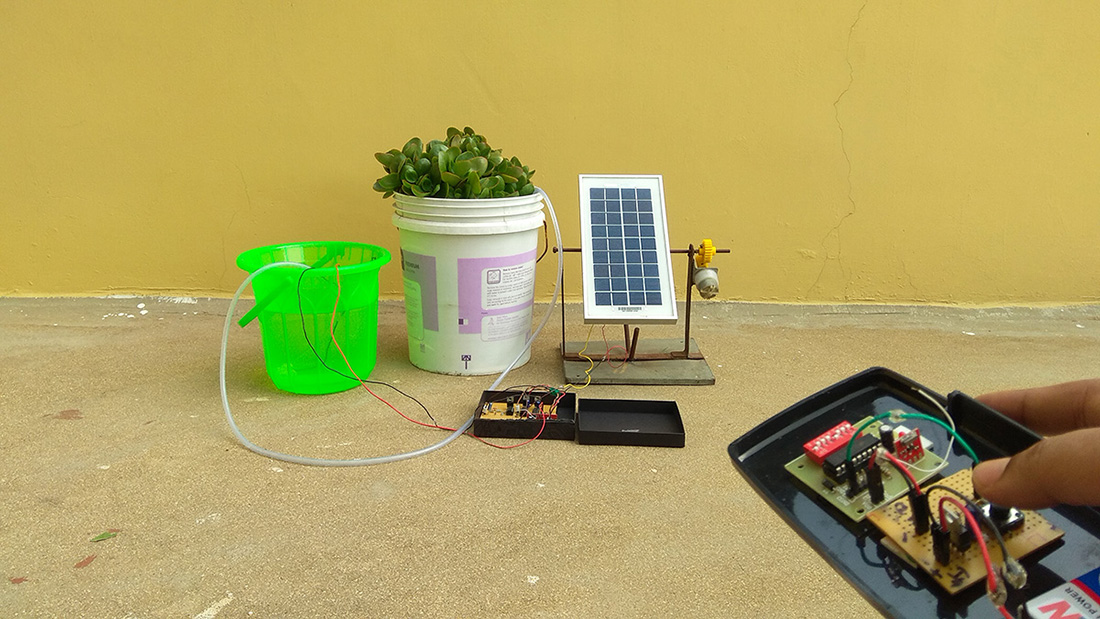With Energy is in huge demand we got to find alternate sources to meet our energy demands.Solar power is a great source of renewable energy and has been widely adopted in many countries.This circuit is a Solar powered Garden Light ( 4 white LED's ).Here we use a solar panel as an energy supplier for a Rechargeable Battery.This battery then provides energy for a timer LM555, wich give us a PWM output to supply the LED's.
PART LIST:
- 4V Solar Panel
- Diode 1N4148
- 2 AA Bateries
- IC LM555 Timer
- PR1 – Potentiometer 10k Ohm
- R1 – Resistor 100 Ohm
- C1 – Capacitor 47 uF
- Transistor NPN 2N3904
- 4 White LED's
WORKING OF SOLAR POWERED GARDEN LIGHT:
First the solar panel generates a DC signal of 4V.The panel needs intense sunlight to generate 4v.The generated voltage from Solar panel goes to pair of AA batteries connected in series together.By this way we will obtain 3V as output voltage from the batteries.The use of a diode is to prevent a counter current going to the solar panel.
Next stage of the circuit starts with IC 555 timer which serves as an Astable multivibrator.The POT PR1 can be adjusted to alter the duty cycle of output square input to get a PWM signal.The PWM signal from pin 3 of IC 555 goes to the base of a NPN transistor 2N3904.This Transistor is wired as a switch to turn the LED's ON and OFF.This is because the 555 has a limited current output, and we can use the transistor as a switch following the PWM signal from the 555, and use a load safe.The PWM signal drives the LED's so quickly and the LED's are quite slow to respond to the signal.So as a result we will see continuous beam of light.The POT PR1 should be adjusted until we cannot notice flicker in the LED's.
The purpose we are using PWM is so save power.Since LED's will be turning ON and OFF constantly it only consume less current and gives a long battery hours before charging again.
Hope this circuit was useful to you.188bet服务官网Do subscribe to our Newsletters and follow us on Social media to updates on New circuits and projects published in our website.









